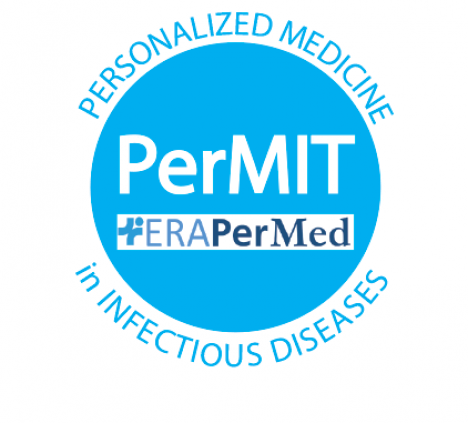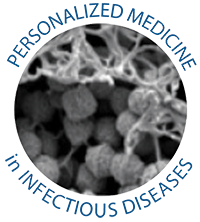PROJECTS
Personalized medicine is a neglected, albeit much desired, development in the field of acute infectious diseases.
The patient population is highly heterogenous with different pathogens, pathogenic mechanisms, as well as varying predisposing host factors, and importantly a dysregulated host response to infection is directly linked to severity and outcome of sepsis and NSTI. The results generated in INFECT, as well as the INFECT clinical registry and biobank now offer a unique resource for the development of the recently started multinational projects, PerAID and PerMIT, that focuses on personalized medicine in severe acute infectious diseases.

PerAID
The PerAID project proposes to boost personalized medicine (PM) in severe infectious diseases, specifically focusing on the life-threatening necrotizing soft tissue infections (NSTI) as well as the large heterogeneous group of sepsis patients. Personalized medicine is a neglected, albeit much desired, development in the field of acute infectious diseases.
The patient population is highly heterogeneous with different pathogens, pathogenic mechanisms, as well as varying predisposing host factors, and importantly, a dysregulated host response to infection is directly linked to severity and outcome of severe infections such as sepsis and NSTI. Hence, tailored immunotherapy in stratified patients holds great potential.

PerMIT
PerMIT is supported by the ERAPerMed initative for joint transnational projects on Personalized Medicine – smart combination of pre-clinical and clinical research with data and ICT solutions.
To achieve its objective, the project builds on a transnational interdisciplinary team of clinicians, experimentalists, bioinformaticians and computational modellers.

INFECT
The INFECT-project included 14 multidisciplinary partners from across Europe, Israel and the US. The overall goal of the project was to advance our understanding of the pathophysiological mechanisms, prognosis, and diagnosis of the multifactorial highly lethal necrotizing soft tissue infections (NSTIs).
NSTI’s are rapidly spreading infections that may cause extensive loss of soft tissue or limbs, multiorgan failure and are associated with a considerable fatality rate. There is an urgent need for novel diagnostic and therapeutic strategies in order to improve outcome of NSTIs. To achieve this, a comprehensive and integrated knowledge of diagnostic features, causative microbial agent, treatment strategies, and pathogenic mechanisms (host and bacterial disease traits and their underlying interaction network) was sought.
















